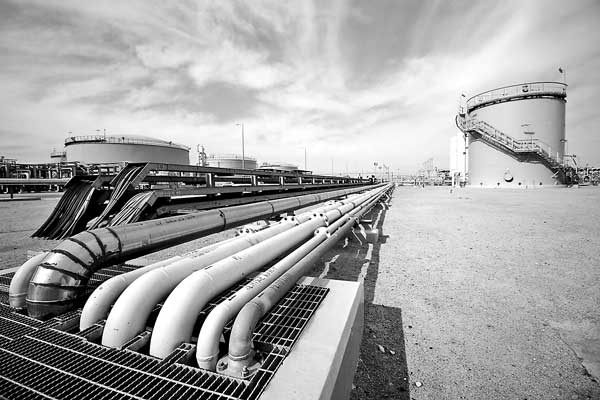05 Mar 2016 - {{hitsCtrl.values.hits}}

Oil prices rose in Asia yesterday after Nigeria said key crude producers plan to meet in Russia later this month to discuss a proposed output freeze.
The pick-up follows a week of gains for the battered commodity, which in January was wallowing near 13-year lows below $30 a barrel owing to overproduction, a supply glut and a slowdown in the global economy.
Nigerian oil minister Emmanuel Ibe Kachikwu said Thursday that the meeting will be held on March 20 and predicted there will be a “dramatic price movement”, Bloomberg News reported. At around 0615 GMT, US benchmark West Texas Intermediate for April delivery was 31 cents higher at $34.88 a barrel. Brent for May rose 33 cents to $37.40 a barrel.
Both have gained about $2 since last week.Crude has picked up recently following speculation over plans by major oil producers including OPEC kingpin Saudi Arabia to cap output.
Market strategist Bernard Aw from IG Markets Singapore told AFP that for the potential meeting between OPEC members and Russia to bear fruit, the major producers have to be present.
“If the big players such as Saudi Arabia, Iran, Iraq, agree to freeze output, it could help somewhat. But, the fundamentals of the market remain largely unchanged, it is still quite oversupplied.
“Maybe in the short term it will help development in the oil market, we could see a return to maybe $40,” Aw said. Another boost to the hammered commodity was US Energy Information Administration (EIA) data released Thursday showing oil production falling to just over nine million barrels per day in the week to February 26. “There were a series of positive developments in the oil market... If this keeps up, then I think we will see a more sustainable rebound in oil markets, at least for the near term,” Aw added.
Oil is still down about six percent this year on speculation a global glut will be prolonged amid brimming US stockpiles and the outlook for increased exports from Iran after the removal of sanctions, Bloomberg reported. Saudi Arabia, Russia, Qatar and Venezuela agreed on February 16 in Doha that they would freeze output if other producers followed suit in an effort to tackle the oversupply problem.
AFP
29 Nov 2024 8 hours ago
29 Nov 2024 9 hours ago
29 Nov 2024 29 Nov 2024
29 Nov 2024 29 Nov 2024
29 Nov 2024 29 Nov 2024